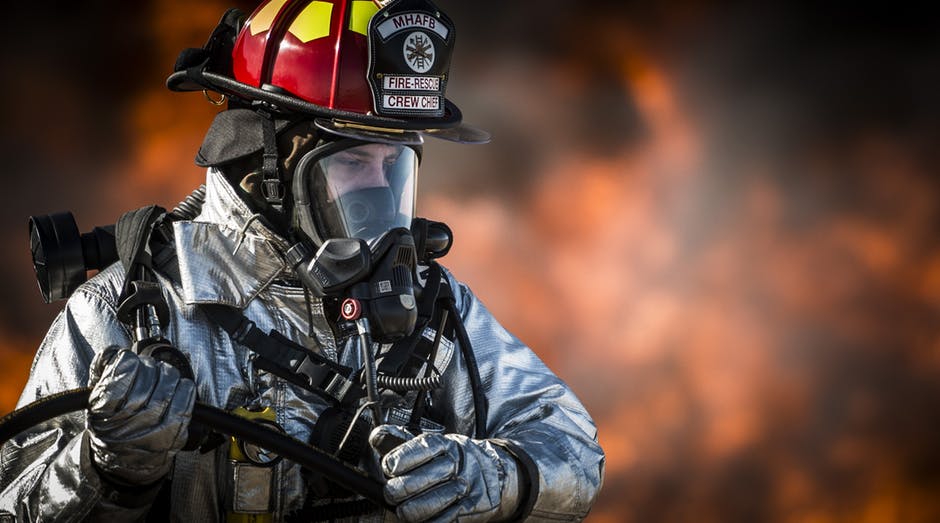
9 Things Your Local Paramedic Firefighters Wish You Knew
In 2018, there were an estimated 1,115,000 firefighters in the United States.
With all those firefighters in the United States, how much do you actually know about them? They are important and keep us safe, but surely there could be ways we could help them if we knew better.
When it comes to an emergency — whether it’s a fire or a heart attack, there are a few important things paramedic firefighters wish people knew. Read on to learn nine things paramedic firefighters wish you knew.
1. Make Sure The Street Numbers Are Easily Visible
When you have an emergency, the dispatcher will likely ask you what your address is. In the event of an emergency, you want to make sure that firefighters and first responders can easily find your house.
That means you should make sure that your house numbers are easily visible from the street.
Make sure that they are at least four inches tall and can even be seen at night.
Keep in mind that firefighters sit higher up in their vehicle then you would, so make sure that you don’t have any foliage or anything higher up covering it.
That way they can get on the fire department radios and let other responders know your location.
2. They’ll Risk Their Lives For You
You should also know that firefighters will risk their lives for you. They put their lives on the line for people every day and go and battle fires and put themselves in dangerous situations.
They’re trained to automatically jump to the rescue when they get that call. It’s the choice they’ve made so you can be safe.
3. You’re Not Invincible to Fires
Everyone at some point has the mindset that something bad could never happen to them. They may think that a fire would never actually happen in their home, but that’s actually not a good assumption.
In fact, it can be dangerous and deadly.
Firefighters are taught that they should expect the unexpected, and you should adopt the same philosophy.
4. Please Practice Fire Drills Regularly
You should also make sure that you practice fire drills regularly in your home.
They’re not just for your workplace or school, if you have a family you need to make sure that they do it as well.
Go over the emergency exits in our home and also have a good escape plan. You should practice the scenario multiples times as well. To have the best results, do it at night when everyone is asleep.
When you’re out of the house, make sure that you all meet up at the designated meetup spot.
5. Make Sure Your Smoke Detectors Are Up to Date
You should also make sure that your smoke and carbon monoxide detectors are working.
Many fires and deaths could’ve been prevented if the smoke detector was working. There should be a working smoke detector on each level of the house, in every bedroom, and outside of every bedroom.
The smoke detector should have a ten-year sealed battery. You should test it weekly and replace it every ten years.
Carbon monoxide detectors are also important to have on each level. They can actually save you if there is a gas leak from the fireplace, stove, or heating unit.
Carbon monoxide can be deadly, and it’s hard to detect because it doesn’t have a certain odor. If you have something that can detect it though, it can help you get out and save your life.
Both of these things make a firefighter’s job easier.
6. Have the Correct Fire Extinguisher
You should also make sure that you have the correct fire extinguisher in your home.
The recommended one is about 2 and 1/2 pounds. It’s the Class ABC multipurpose dry chemical extinguisher.
This model can be used to put out all kinds of fire, like wood, paper, liquids, electrical appliances, outlets, and plastics. If you have one in your kitchen, put it near an exit and keep it about six feet away from the stove.
7. Smoke Is More Harmful Than the Fire
You should also know that smoke is more harmful than fire.
The fire is scary, but breathing in the toxins from the smoke could actually kill you later on. Many people die from asphyxiation before they even get touched by the flames.
8. Only Work Eight Days a Month
Most firefighters only work about eight days a week.
For most of the career and paid staff, they normally work 24 hours on and then about 48 to 72 hours off. That works out to about eight days a month.
This may sound terrible to some and like a dream to others. However, it’s a physically demanding job, and they often have to work weekends, nights, and even holidays.
9. Every Second Counts
At the end of the day, most firefighters want you to know that every second counts. When it comes to life and death, take every second you can.
The smoke and CO detectors are great at buying you a few seconds, so that’s why you need to make sure they work.
But if there is a fire in your house, you need to make sure you get out of the house as fast as you can. House fires can actually double in size every minute that goes by, so make sure you don’t waste any time.
Likewise, a carbon monoxide leak can kill you within twenty minutes, but it can knock you unconscious even before that.
Learn More About Paramedic Firefighters
These paramedic firefighters are so important to keeping us safe, and they’ll always come when they’re called.
With this knowledge, go home and make sure that your smoke detectors work and that you’re ready to make sure you don’t have to call the firefighters.
If you enjoyed this article, make sure you check out our website for others just like it!
